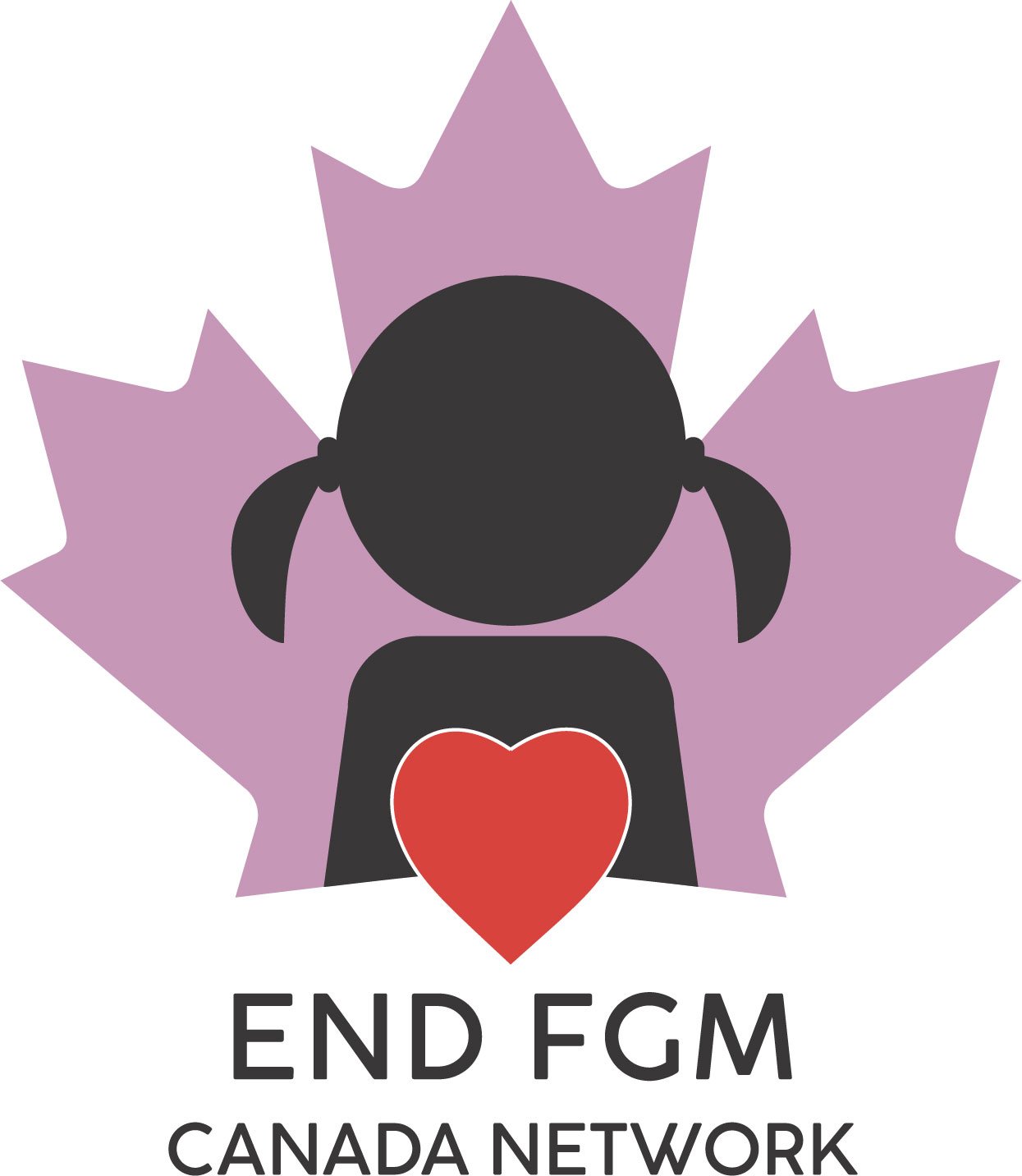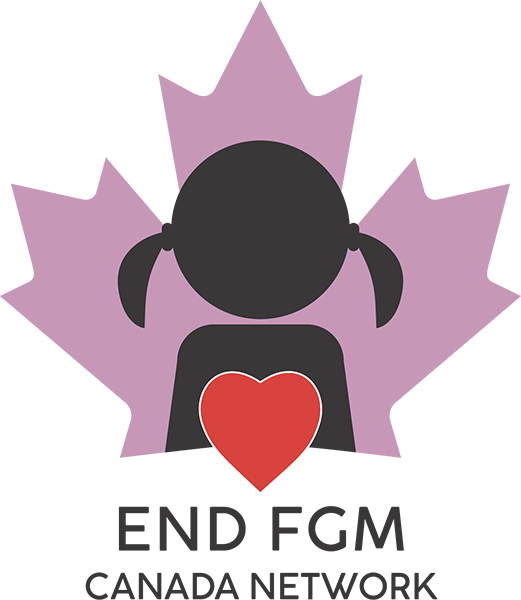
Our Impact
IMPACT REPORT: YEAR 3 (2021)
‘Joining Hands’
We are happy to announce that we have received substantial funding from the Department of Women and Gender Equality (WAGE) for our, “Joining Hands” project.
The focus of the Joining Hands Project is to create systems of support for girls in Canada at risk of FGM/C and survivors through informed professionals across health, mental health, education, and child protection sectors.
This project will create online interactive education modules for professionals involved in the care of FGM/C survivors and in protecting girls at risk. We will address knowledge gaps in health, mental health, education, and child protection areas through modules in both official languages. We aim to do this in partnership with survivors and key FGM/C professionals. We will also host quarterly ongoing sector-specific bilingual webinars with national and international experts, to enhance understanding of issues surrounding FGM/C among both Canadian professionals and the Canadian public.
We are looking forward to ‘joining hands’ with Canadian stakeholders and partners on this project as we address systemic barriers by advancing inclusive policies and practices, increasing knowledge, and building networks and collaborations to accelerate systemic change.
If you would like to be involved in this project please contact the National Program Manager, Alisa Tukkimaki (alisa@endfgm.ca)
IMPACT REPORT: YEAR 2 (2020)
On a winter’s day in February 2019, four women concerned about the issue of female genital mutilation/cutting (FGM/C) in Canada met in a Vancouver coffee shop. They had connected through the documentary In The Name Of Your Daughter. Farzana Doctor, Klara Hillmann, Giselle Portenier, and Malaika Somji were troubled about the lack of action on FGM/C. They decided to act. On March 8th, International Women’s day, they launched the End FGM Canada Network.
Since then, one of our members started a petition asking the Canadian government to take action on FGM/C. Another became the first Canadian survivor of female genital mutilation/cutting to speak at a public vigil. A third published a Master’s thesis on Canada’s inaction and a blueprint for change on FGM/C.
Our Network created a strong social media presence. We've embarked on film screenings, educational panels, and a shopping mall education day. We have engaged with health and educational professionals and local, provincial and federal governments. We co-hosted a day-long FGM/C workshop at the Women Deliver conference. We got cities and provinces from coast to coast to proclaim February 6th as the International Day of Zero Tolerance for Female Genital Mutilation. We have forged strong partnerships with international organizations. We have appeared on radio, tv, and in print, highlighting the need for a Canadian National Action Plan on FGM/C.
Impact Highlights
Canada Take Action Petition!
One of our founding members,16-year-old Vancouver girl Malaika Somji started a petition. She wants the Canadian government to take action on Female Genital Mutilation/Cutting. So far, it has more than 5,000 signatures, but we need more!
Thousands participate in the #MyIssueTooCanada Campaign
We engaged Canadians across the country with our #MyIssueTooCanada campaign. From Coast to Coast we had film screenings of the documentary In The Name Of Your Daughter. We showed people that Female Genital Mutilation/Cutting is a Canadian issue too. We explained that we have thousands of survivors who need help. We told audiences that thousands of girls in Canada need protection. From St. John’s Newfoundland to Vancouver British Columbia people stood up and said #FGM is #MyIssueTooCanada!
End FGM Canada at Women Deliver! Uniting Forces to Ensure FGM/C is a Practice of the Past
In June 2019 at the Women Deliver conference in Vancouver, we co-hosted a workshop on Female Genital Mutilation/Cutting. Uniting Forces to Ensure that FGM/C is a Practice of the Past was a sold-out event with activists from around the world. One of the speakers was our youngest founding member, 16-year-old Malaika Somj. Afterwards, Anastacia Mashindana draped a tribal necklace around Malaika’s neck. The Maasai women from a Maasai from Kenya. said to Malaika, ‘you are my daughter. Two generations of activists united by a common cause.
In The Name Of Your Daughter film screening
We showed the documentary In The Name Of Your Daughter at the Vancity Cinema on the eve of the Women Deliver conference. Some of the world’s most influential female genital mutilation activists came to see this Canadian film. On a panel afterwards, several of the campaigners tackled the question- “Female Genital Mutilation-A Western Issue Too? They included Shelby Quast from Equality Now, Aissata Camara from There is No Limit Foundation, and Mariya Taher from Sahiyo.
Co-Founder Giselle Portenier took to the stage at the Women Deliver conference in Vancouver. Portenier is the director of the documentary In The Name Of Your Daughter and a founding member of the End FGM Canada Network. She gave a moving power talk inspired by the brave girls in her documentary, ‘In the name of your daughter’.
Operation Petal Power!
The Network launched the Petal Writing campaign at the Women Deliver conference. We asked women and men to write #EndFGM messages on flower petals and pin them to a world map. The map shows the global nature of the problem. FGM/C is now an issue on every continent except Antarctica.
Global Platform for Action to End FGM/C Launched!
The End FGM Canada Network, together with international FGM/C activists and organizations launched the Global Platform for Action to End FGM/C. Almost 1,000 individuals and organizations have signed up to our joint call to action.
First Canadian FGM/C survivor speaks at public vigil
It was a historic night. On December 6th, 2019, Network Founding Member Farzana Doctor became the first Canadian FGM/C survivor to speak at a public vigil. She moved many people to tears when she spoke about female genital mutilation/cutting. The vigil honored the 1989 victims of Montreal’s Polytechnique massacre. Farzana Doctor called for Canadian action to help survivors and protect girls at risk.
February 6th, International Day of Zero Tolerance for Female Genital Mutilation
‘Operation Proclamation’
For February 6th, we launched ‘Operation Proclamation’ to increase awareness. We wanted cities and provinces across Canada to proclaim Feb 6 as the International Day of Zero Tolerance for Female Genital Mutilation. Twenty two cities and four provinces issued the proclamations. In St. John’s Newfoundland, FGM/C survivor Maryam Sheik was in council chambers as Mayor Danny Breen read the proclamation out loud. Afterwards she addressed city council with a moving speech. A few days later, in Newfoundland's Confederation building, Maryam received the provincial declaration from Carol Anne Haley, the Minister for the Status of Women. Maryam, who was mutilated at the tender age of six, told the Minister her story. From coast to coast, the proclamations were read aloud. In Alberta, Leela Aheer, Minister of Culture, Multiculturalism and the Status of Women held a launch to publicize the event.
Regina, Saskatchewan was the only city in all of Canada that outright refused to issue a proclamation. They said "we can't take sides on this issue; we can’t be for or against.’ It shows how much work is still needed for Canadians to understand that FGM/C is a human rights issue. Full Stop.
Heroes of Change
Each day for thirty days on twitter we featured ‘heroes of change.' These heroes are people who are working to make change on FGM/C in Canada. Among the heroes were Calgary Doctor Angela Deane; FGM/C survivors Maryam Sheik and Farzana Doctor; journalist Karlene Nation from Missisauga’s Sauga 960; Leela Aheer, Alberta’s Minister of Culture, Multiculturalism and Status of Women; Vancouver youth campaigners Malaika Somji and Rosie Makore from Tanzania.
Other February 6th Actions
Screenings of the documentary In The Name Of Your Daughter inspired audiences in St. John’s, Ottawa, and Toronto. In Toronto, the screening was co-sponsored by City Councillor Kristen Wong Tam , Amref Health Africa Canada, Islamic Relief, We Speak Out, and the Arab Community Centre of Toronto. Afterwards a panel addressed the Canadian nature of FGM/C. The panel included FGM survivor and network co-founder Farzana Doctor; Reyhana Patel from Islamic Relief Canada; Jacobet Edith from Uzima International; and Afeez Bakare, whose family is seeking asylum in Canada to protect their daughters from Female Genital Mutilation.
Success for Bakare Family Seeking Refugee Status
We supported the refugee claim of the family of Rasheedat and Afeez Bakare and their children. They came to Canada to protect their new-born daughter Faiqah from Female Genital Mutilation.
When they were threatened with deportation, the End FGM Canada Network jumped into action. We contacted our grass roots contacts in Nigeria. With their help, we wrote a letter in support of the family to the Canadian government. We helped mobilize media attention to this case. Eventually, the Bakare family received a 6-month reprieve.
In The News!
Throughout the year, network members have appeared on radio, in print, and on TV. From coast to coast, we’ve brought media attention to the issue of female genital mutilation/cutting in Canada.
We've appeared on the CBC, in The Globe And Mail, on Corus Radio, Sauga 960 AM, the Regina Leader Post, the Edmonton Journal, Global News and more.
Advocacy with Government
We’ve been engaging with all levels of government. From coast to coast, twenty-two cities and four provinces proclaimed February 6th as the International Day of Zero Tolerance for Female Genital Mutilation. In many cities, mayors read the proclamation into the record at council meetings. In November, on the floor of the provincial legislature in Alberta, Leela Aheer, the Minister of Culture, Multiculturalism and Status of Women, recognized Female Genital Mutilation as a Canadian issue. Later the same day she hosted a screening of In the Name Of Your Daughter at the Royal Alberta Museum. The network is also engaged in discussions with Global Affairs and the Department for Women and Gender Equality (WAGE) on ways to address FGM/C in the Canadian and international contexts.














